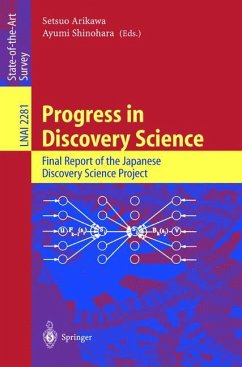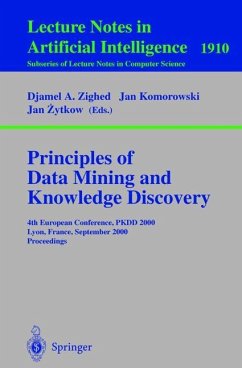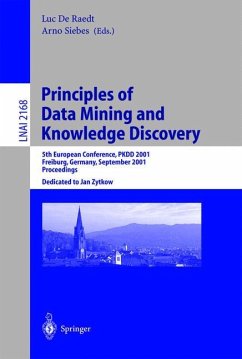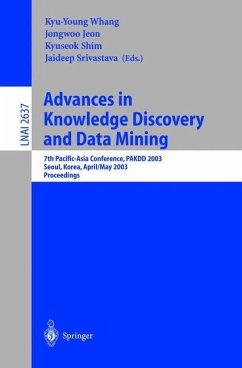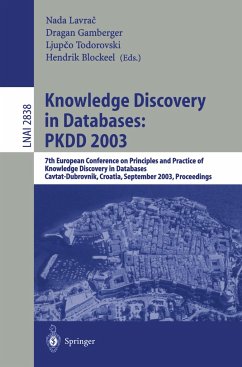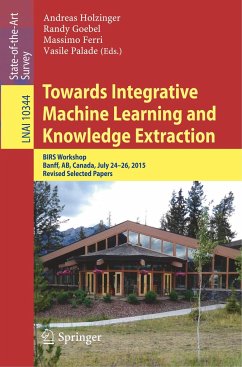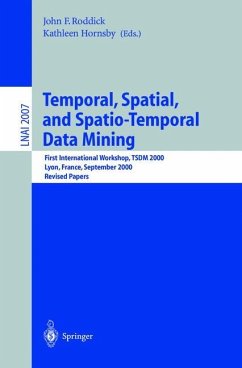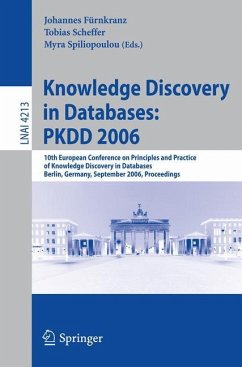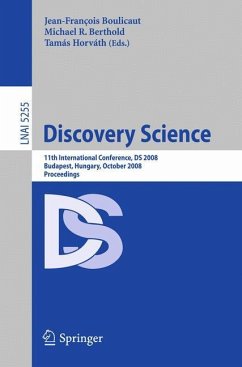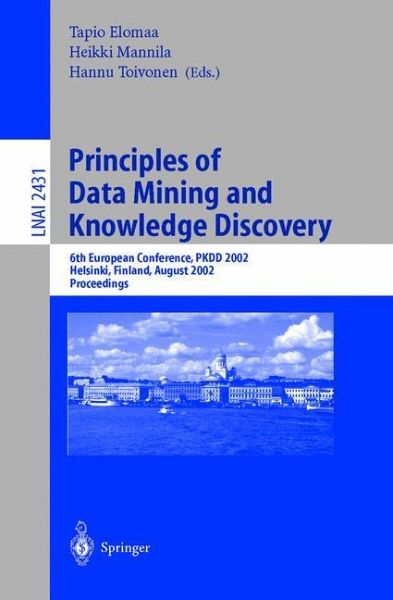
Principles of Data Mining and Knowledge Discovery
6th European Conference, PKDD 2002, Helsinki, Finland, August 19-23, 2002, Proceedings
Herausgegeben: Elomaa, Tapio; Mannila, Heikki; Toivonen, Hannu

PAYBACK Punkte
20 °P sammeln!
We are pleased to present the proceedings of the 13th European Conference on Machine Learning (LNAI 2430) and the 6th European Conference on Principles and Practice of Knowledge Discovery in Databases (LNAI 2431). These two c- ferences were colocated in Helsinki, Finland during August 19 23, 2002. ECML and PKDD were held together for the second year in a row, following the success of the colocation in Freiburg in 2001. Machine learning and knowledge discovery are two highly related ?elds and ECML/PKDD is a unique forum to foster their collaboration. The bene?t of colocation to both the machine...
We are pleased to present the proceedings of the 13th European Conference on Machine Learning (LNAI 2430) and the 6th European Conference on Principles and Practice of Knowledge Discovery in Databases (LNAI 2431). These two c- ferences were colocated in Helsinki, Finland during August 19 23, 2002. ECML and PKDD were held together for the second year in a row, following the success of the colocation in Freiburg in 2001. Machine learning and knowledge discovery are two highly related ?elds and ECML/PKDD is a unique forum to foster their collaboration. The bene?t of colocation to both the machine learning and data mining communities is most clearly displayed in the common workshop, tutorial, and invited speaker program. Altogether six workshops and six tutorials were or- nized on Monday and Tuesday. As invited speakers we had the pleasure to have Erkki Oja (Helsinki Univ. of Technology), Dan Roth (Univ. of Illinois, Urbana- Champaign), Bernhard Sch olkopf (Max Planck Inst. for Biological Cybernetics, T ubingen), and Padhraic Smyth (Univ. of California, Irvine). The main events ran from Tuesday until Friday, comprising 41 ECML te- nical papers and 39 PKDD papers. In total, 218 manuscripts were submitted to these two conferences: 95 to ECML, 70 to PKDD, and 53 as joint submissions. All papers were assigned at least three reviewers from our international program committees. Out of the 80 accepted papers 31 were ?rst accepted conditi- ally; the revised manuscripts were accepted only after the conditions set by the reviewers had been met.





